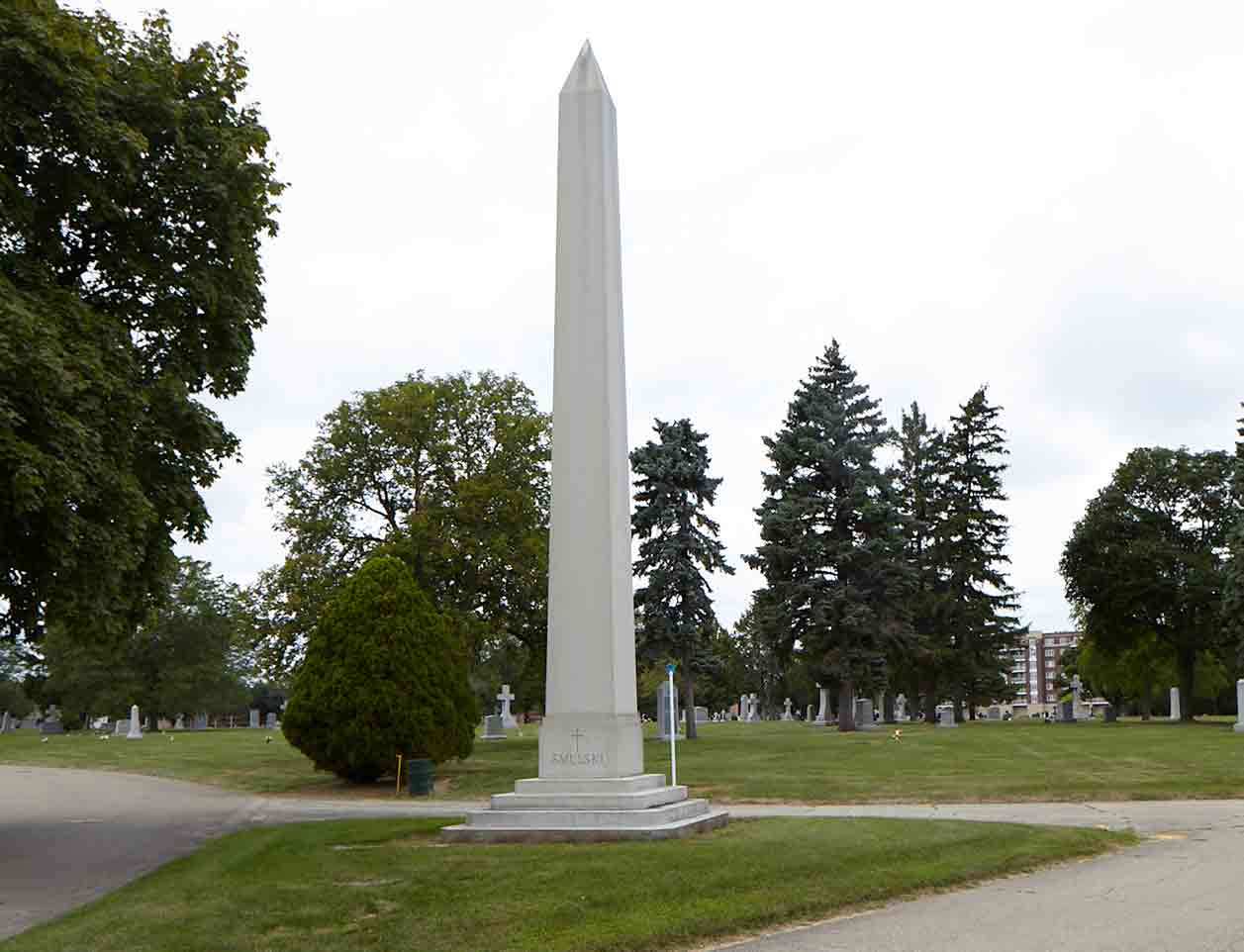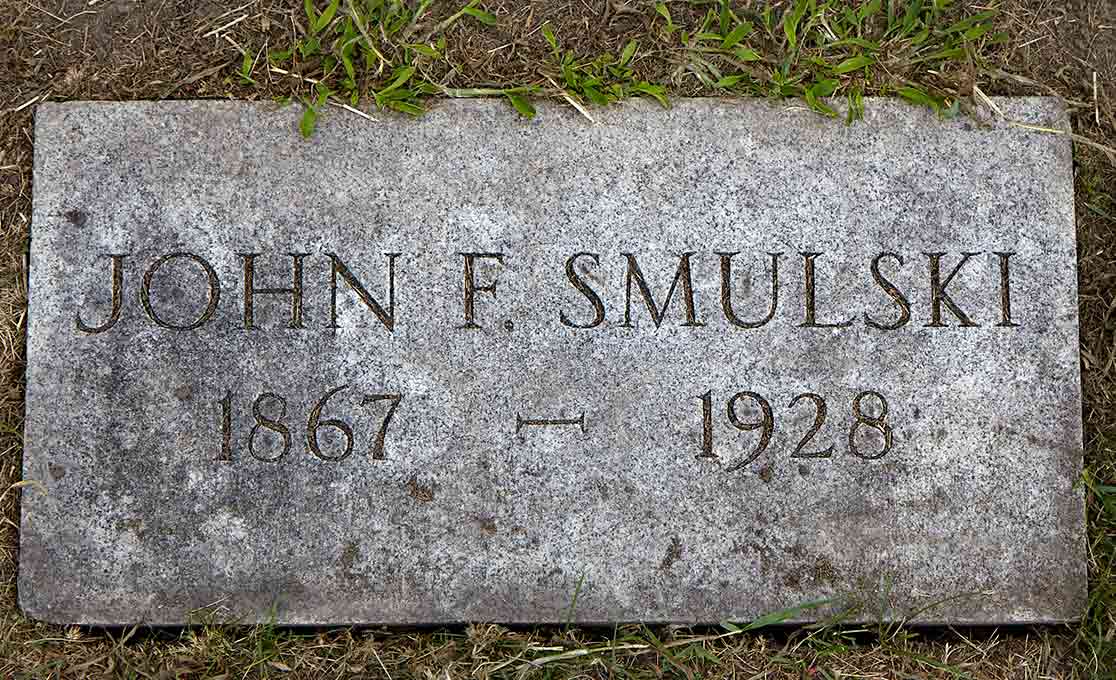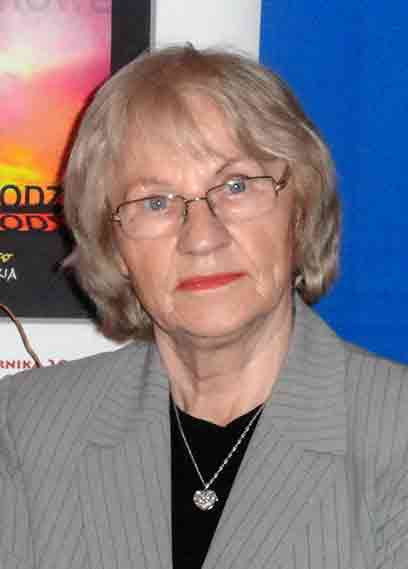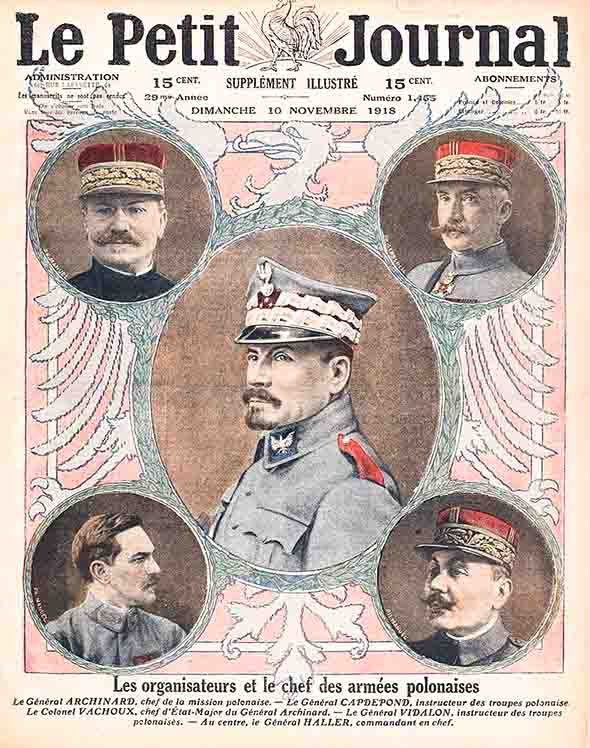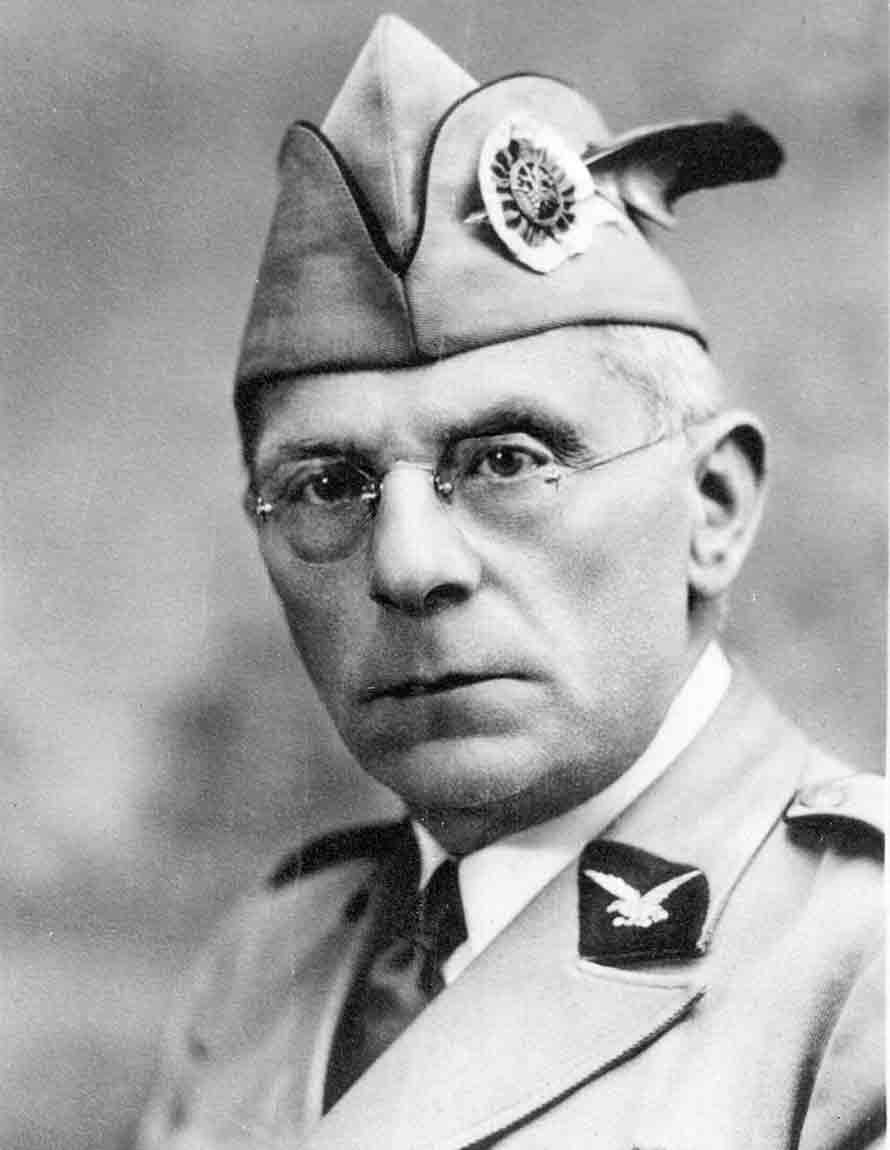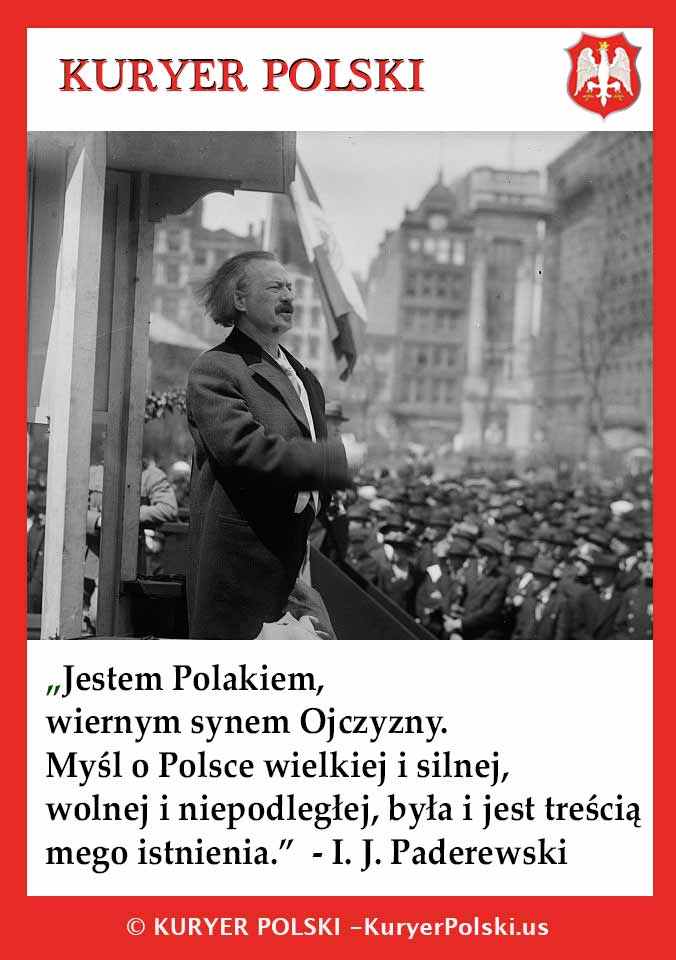Polish emigrants to the United States wrote a beautiful page in the history of both nations. Everyone knows very well about such gifted soldiers as Kościuszko or Pulaski. There is extensive and common knowledge about such outstanding artists as I.J. Paderewski or Helena Modrzejewska. Successes are very often supported or conditioned by big money. This was the case during the years of struggle for independence and it is so today. It is worth introducing the countrymen at home to the figure of the outstanding activist of the Polish community in the USA, without whom the success of the Blue Army of General Józef Haller and the diplomatic successes of JI Paderewski and Roman Dmowski would not have been possible. JAN FRANCISZEK SMULSKI - an outstanding patriot, champion of the Polish cause towards the US President Wilson, close associate of Jan Ignacy Paderewski and Roman Dmowski, an organizer of financial aid for the reborn Poland, an emigrant initiator of key undertakings for the Independent. Lawyer, journalist, publisher, politician and, very importantly, the first Polish millionaire and banker in Chicago.
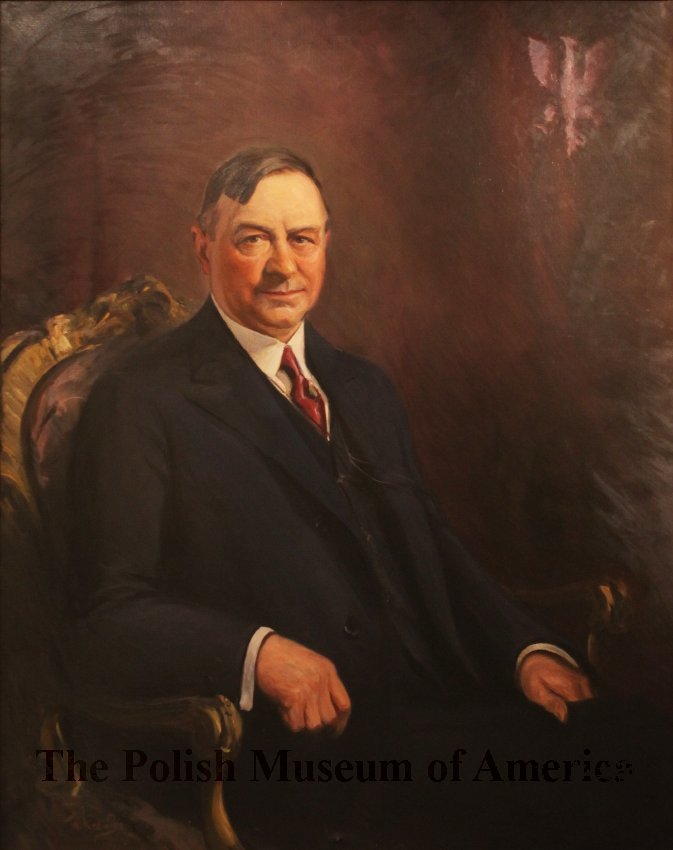
Jan Smulski - portrait (Photo: Polish Museum in Chicago)
He was born on February 4, 1867 in Trzemeszno, a small town in Kujawy, then under Prussian rule. Actually, his name was Jakiński and he started studying in Poland under that name. In 1881, following the trail of many Poles, he emigrated to the States, where his father was already staying. Władysław Jakiński, a journalist, publisher and activist of the Polish community abroad, changed his name to Smulski, so Jan began to use that name and it remained that way until the end of his life, and he entered the history of the Polish community under this name. In 1884, together with his father, he became a co-owner of Gazeta Katolicka in Chicago. Despite his young age, he appreciated the importance of education. He chose law studies, for which he worked as a shop assistant. Jan F. Smulski graduated from the Law Faculty of Northwestern University and became an attorney. As an able and committed lawyer, he held increasingly responsible positions in the Chicago administration. In 1903, Jan Smulski was elected city prosecutor and became famous as a staunch opponent of corruption; in 1906 he was entrusted with the position of city treasurer; and in 1898 as a republican he was first elected a Chicago councilor and secured his re-election several times. Working for the country that accepted him as an emigrant, he did not forget about his Polish roots.
Polish emigrants worked very hard, 10-12 hours a day. The mortality rate among the workers was high. Often the family had no money to bury the deceased for. There were no cheap insurance or unemployment benefits. In order to alleviate difficult economic times, enlightened Polish entrepreneurs established the Polish National Association (Związek Narodowy Polski, ZNP) in 1880 which has primarily become a low-cost insurance organization supporting the families of the deceased. In addition to cheap insurance, a lot of capital was created from the interest income of member policies, which was allocated to social purposes. The ZNP established a number of publishing and educational institutions. Thanks to financial independence (since the end of the 19th century, the assets of the ZNP are estimated at over USD 0.5 billion), Poles began to constitute a significant political force. Legislative power in the ZNP to this day is exercised by the Association Parliament, which meets every four years.
Jan Smulski very quickly began to cooperate with the Polish National Union and the Polish Roman Catholic Union ( Zjednoczenie Polskie Rzymsko Katolickie,ZPRC). Polish organizations entrusted him with more and more important functions in the life of the Polish diaspora.
In 1892 Jan Smulski became a member of the Committee for the Construction of the Tadeusz Kościuszko Monument in Chicago, initiated by the PNA. The following year, 1893. he participated for the first time in the Seym of the PNA in Chicago and was elected one of the so-called supervisors of the ZNP cash register. In 1894 he became a member and was active in the Polish Falcons of America. While his father was still alive, he took over the management of his businesses and undertook many of his own economic initiatives.
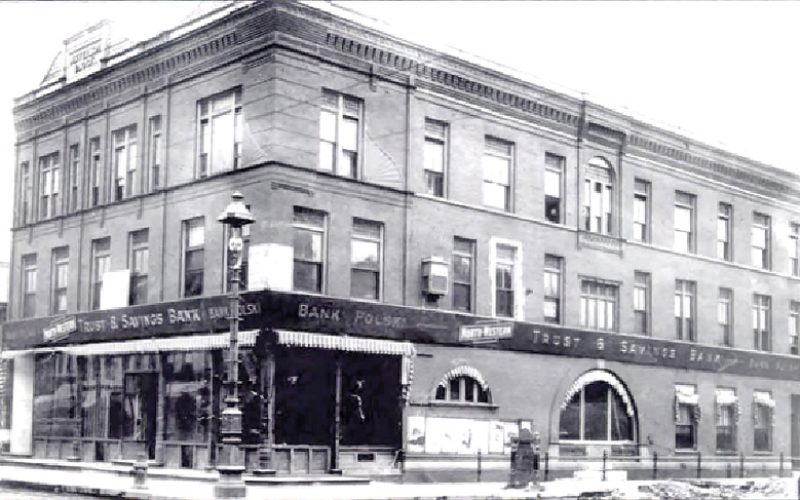
Smulski's bank (Photo: Dziennik Związkowy)
In May 1903, he obtained a banking license and founded a state bank together with other Polish entrepreneurs. Smulski's bank was called the Northwestern Trust and Saving Bank and was located in the center of the Polish district of Chicago at the corner of Milwaukee Avenue, Ashland and Division. It was the first Polish community project of this type. Its management and most of the staff were Polish, and the stock actions were distributed among Poles. A group of shareholders in the bank, to which also belonged Fr. Wilhelm Grutz, the builder of the Basilica of St. Josefat, Milwaukee, formed a gold mining company on the Sacramento River in California. Profits from this activity ensured serious income and raised the prestige of its owners. On November 11, 1904 during the ceremony of unveiling the Kosciuszko Monument in Chicago, Smulski spoke as the first speaker and read a letter from President T. Roosevelt to the Polish community. He was already a great moral authority then. He combined making money with patriotic activity.
After the outbreak of World War I, most of the hostilities took place on Polish soil, and the Poles were threatened with biological extermination due to hunger and mass diseases. Help for the endangered nation came from compatriots from America. Jan Smulski was one of the founders of the Polish Central Rescue Committee (Polski Centralny Komitet Ratunkowy, PCKR) and co-organized material aid for the Polish population. At the same time, he carried out diplomatic activities for the reborn Poland. He was part of the Polish delegation received by President W. Wilson in Washington and handed him a memorial about the need for help for the Polish nation. He prepared the creation of a new political organization of the Polish diaspora, which became the Polish National Department (Wydział Narodowy Polski, WNP).
As a representative of this department, Jan Smulski participated in talks with a representative of France on the organization of the Polish army. It would not be possible to create this army without the finances to secure its volunteer recruitment, training, maintenance and equipment. Smulski was one of the main initiators of the convening of the Sejm of Polish Emigration in Detroit (August 26–30, 1918), attended by Paderewski and Dmowski. He presided over this Sejm and in a dramatic speech supported Paderewski's appeal to the Polish community abroad for the creation of a 10 million National Fund, intended for political and charitable activities. The fund was established and in the following months Smulski, on behalf of the WNP, endorsed the transfer of large sums of money to the KNP in Paris ($100,000 in November 1918, $250,000 in December 1918 and January 1919).
Smulski family obelisk (Photo: Marcin Murawski)
In 1919, the WNP transferred to Poland about 100,000 dollars for charity (including $40,000 at Paderewski's disposal for the Polish White Cross). These funds could be used for political activities, which resulted in the attacks of the Polish left on Smulski. Through Smulski's bank, the Polish community abroad also sent individual funds to the country (around $6 million). His efforts in terms of food and material aid ended with success. In February 1919, the WNP sent a ship to Poland with food worth $1 million. In this regard, he collaborated with successive aid institutions led by Herbert Hoover - the American Relief Administration (February-July 1919) and the American Relief Administration European Children's Fund.
Jan Smulski sought a loan from the United States to Poland for economic development and the resale of part of the military assets of the American Expeditionary Forces in Europe and the support of the President of the United States for the postulate of handing over Gdańsk to Poland. Thanks to Smulski's efforts, Polonia financially supported the Polish campaign in Upper Silesia and by facilitating the departure from the USA for Poles who wanted to take part in the plebiscite. On January 10, 1920, he went to Poland, bringing the WNP authorization to pay 25 thousand dollars to the Plebiscite Fund.
In August 1920, Jan Smulski called on President Wilson to morally support Poland fighting against Soviet Russia. In 1921, he became involved in supporting the uprising in Silesia. He has always worked closely with Roman Dmowski; he personally supported the creation of the daily "Rzeczpospolita". His financial assistance to the Blue Army soldiers returning to America was of great importance. After I.J. Paderewski left the government, he still financed various social and charity campaigns. He still donated small amounts to domestic communities close to Paderewski. The crisis called the "great depression" was looming and Smulski's bank, despite contributions then estimated at 20.5 million dollars was experiencing difficulties.
Efforts for finances and mediation between supporters of different visions and different paths to independent Poland, and the developing cancer, physically exhausted Smulski and broke him mentally. On March 18, 1928, he committed suicide. His family grave is located in the cemetery of St. Adalbert in Niles, a suburb of Chicago. The Polish community appreciated its patriot banker. In 1939, I.J. Paderewski appealed to the Polish diaspora to let "the old, great spirit of the Smulski family" enter it.
Jan Smulski's grave plaque (fot. Marcin Murawski)
The figure of Smulski should be a moral model for all entrepreneurs, for all those working today for the Independent. It should be an honor to associate his name with institutions, enterprises and economic departments at universities. We need to restore the memory of Poles like Smulski, for example by funding a commemorative plaque or naming the street with him in Trzemeszno, his hometown, which should be proud of him and should know that he is a fellow countryman. Karol Wachtl, a Polish diaspora historian, called him "unquestionably an outstanding, perhaps the most outstanding good type of a Pole-American, who is able to reconcile the Polish ideology with the American one".
Jan F. Smulski was awarded the Commander's Cross of the Order of Polonia Restituta in 1923 and the French Legion of Honor medal.
Translation from Polish: Andrew Woźniewicz with the assistance of Google Translate.



